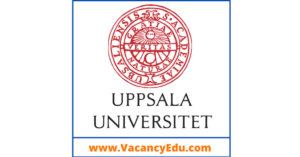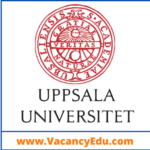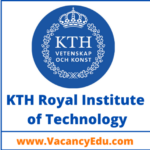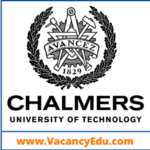Uppsala University, Sweden invites online Application for number of Fully Funded PhD Degree at various Departments. We are providing a list of Fully Funded PhD Programs available at Uppsala University, Sweden.
Eligible candidate may Apply as soon as possible.
(01) PhD Degree – Fully Funded
PhD position summary/title: PhD positions at the Department of Economic History
The following projects are searching for one PhD student each:
Project 1. Creating value of hazardous waste: recycling in the automobile industry, 1970-2020s
While reuse and recycling have always been part of human practice, post-war consumerism led to an unprecedented increase in the volume of waste and made Sweden one of the leading per capita waste producers in Europe in the 1970s. Parallel to the growth of waste was the awakening of modern environmentalism and 30 years later, Sweden had transformed its economy to become a technological leader in advanced recycling services, not only for household waste, but also for complex industrial waste, such as the recycling of automobiles and household appliances. In today’s large-scale transitions in the automotive industry, a deeper understanding of adaptability, flexibility, as well as inertia and inactivity, is central, especially in relation to complex and hazardous materialities such as battery cell production.
By looking at the dynamics of the past, this project intends to highlight the challenges and opportunities for future paths by examining the materialities, industrial organization and policies behind the growth and transformation of the recycling sector in the Swedish economy from 1970 to 2020. The project is based on a historical approach to understand the conditions for the recycling and manufacturing industries by uncovering long-term processes. The basis for this project is the construction and analysis of largely unexplored archival material as well as rich material in the form of a series of reports produced by the Swedish authorities. As a Ph D. student, you are expected to study the drivers behind the transformation of scrap trading and processing firms into high-tech recycling firms, and how the market has been consolidated into a limited number of large players. The scaling and consolidation of the market structure will be explored by focusing on the key players that have remained in business during the study period.
Project qualifications: background in economic history, history, history of ideas or similar disciplines. Documented experience of archival research and qualitative methods is qualifying for the position.
More information: project leader Daniel Normark, [email protected]
Project 2. Economic Outcomes of the ´Entrepreneur´ during the Expansion of the Welfare State
To what extent do the self-employed represent a productive force in the economy? The share of self-employment—by contrast to wage earners—in the labor market over the past 100 years has followed a U-shaped curve: high levels before World War II, low levels during the mid-20th century welfare-state expansion, and then back to high levels again in recent decades. In this project, the PhD student will apply econometric techniques on micro-level data to investigate the causes of, and effects stemming from, the sharp decline in self-employment during the mid-20th century.
The project involves digitizing Stockholm’s tax and population registers, covering the entire population of Stockholm from 1940 to around 1970, in collaboration with other researchers at the Department of Economic History. These registers contain highly detailed individual-level information on income from self-employment and wage work, as well as occupation and industry. The data will be processed automatically using machine-learning methods through a model already developed within the project.
Project qualifications: A relevant background includes a degree in economic history, sociology, data science, economics, political science (or a related field). Documented skills in econometrics/statistics and/or data science are meritorious.
More information: project leader Jakob Molinder, [email protected]
Project 3. The managing of the Swedish banking crisis 1990-2005
Despite the fact that there is an extensive literature on government intervention in banking crises, we know very little about the work carried out by the hundreds of civil servants, lawyers, accountants, management consultants and other experts to implement the decisions on intervention made at the political level. This knowledge gap is problematic because the work, judgment, organization and decision of these individuals strongly influence the forms, scope, consequences and costs of state’s banking crisis management. In this project, this is investigated by studying the managing of the Swedish banking crisis in the early 1990s, based on extensive archival studies, interviews and witness seminars.
Deadline : 15 September 2026
(02) PhD Degree – Fully Funded
PhD position summary/title: PhD student in Information Studies, AI and Digital Humanities research
This PhD position is part of the Wallenberg AI, Autonomous Systems and Software Program on Humanities and Society (WASP-HS) which aims to realize excellent research and develop competence on the consequences and challenges of artificial intelligence and autonomous systems for humanity and society. The Wallenberg AI, Autonomous Systems and Software Program – Humanity and Society (WASP-HS) is a national research program in Sweden. The vision of WASP-HS is to foster novel interdisciplinary knowledge in the humanities and social sciences about AI and autonomous systems and their impact on human and social development. WASP-HS enables cutting edge research, expertise, and competence building in the humanities and social sciences.
For more information about the research and other activities conducted within WASP-HS, please visit this website.
The WASP-HS graduate school provides foundations, perspectives, and state-of-the-art knowledge in the different disciplines taught by leading researchers in the field. Through an ambitious program with research visits, partner universities, and visiting lecturers, the graduate school actively supports forming a strong multi-disciplinary and international professional network between PhD students, researchers and practitioners in the field. It thus provides added value on top of the existing PhD programs at the partner universities, providing unique opportunities for students who are dedicated to achieving international research excellence with societal relevance.
Deadline : 30st of November 2025
View All Fully Funded PhD Positions Click Here
(03) PhD Degree – Fully Funded
PhD position summary/title: PhD student in condensed matter theory
The research will focus on the application of density functional theory (DFT) to study the magnetic properties of two-dimensional materials, so-called 2D magnets and heterostructures created from different types of 2D magnets. This will include calculations of different types of magnetic exchange interaction parameters to be used in Monte Carlo simulations and atomistic spin dynamics. Effects that lie outside of one-electron physics, where so-called pronounced electron correlation effects are important, will be studied using dynamical mean field theory (DMFT). One of the main tasks will be calculations of X-ray absorption and magnetic circular dichroism spectra for these materials. This is planned to be done using DMFT and similar many body methods. A further development of existing methods will be carried out towards enabling calculations of resonant, inelastic spectra. The spectroscopic methods will be used to compare with available experimental results, taken at e.g. MAX IV. Finally, high-throughput calculations using a home-built python-based platform will be done to find new 2D magnets and also use the data to develop machine learning models to predict exchange interactions and magnetic transition temperatures.
Deadline : 16 September, 2025
(04) PhD Degree – Fully Funded
PhD position summary/title: Doctoral student in European Law and AI
The Department of Law invites applications for a PhD position in European Law and AI, funded within the research programme WASP-HS. The PhD student will be employed by the Department of Law and will be admitted to the doctoral programme leading to a Doctor of Laws degree.An employed doctoral student must primarily devote his or her time to his or her own doctoral research (4 years full-time). Other duties may be included, such as teaching students, working in teaching teams, and administration (no more than 20% of the position) in which case the position may be extended to a maximum of 5 years. Rules governing doctoral students are set out in the Higher Education Ordinance chapter 5, §§ 1-7, in Uppsala University’s rules and guidelines, and in the general study plan
Deadline :6 October 2025
(05) PhD Degree – Fully Funded
PhD position summary/title: PhD student in Physical Chemistry with Focus on Light- and Spin-Based Spectroscopies
The PhD candidate will be responsible for conducting advanced spectroscopic investigations of novel molecular materials capable of undergoing singlet fission. The primary techniques will include time-resolved optical spectroscopy, such as transient absorption as well as electron paramagnetic resonance (EPR) spectroscopy. The student will design, perform, and analyze experiments aimed at understanding the mechanisms of triplet pair formation and coherence, with the broader goal of establishing design principles for efficient singlet fission. Additional responsibilities include the writing of scientific manuscripts, presentation of research findings at internal meetings and international conferences, and active participation in collaborative discussions within the research group.
Description of research project: The project is rooted in fundamental physical chemistry and aims to explore the photophysical behavior of molecular systems with potential applications in quantum information technologies, such as quantum sensing. By combining light- and spin-based spectroscopies, the research seeks to uncover the underlying principles that govern singlet fission and triplet dynamics. While the focus is on fundamental understanding, successful outcomes may open pathways toward applied research in molecular quantum technologies.
Deadline : 15 September 2025
Polite Follow-Up Email to Professor : When and How You should Write
Click here to know “How to write a Postdoc Job Application or Email”
(06) PhD Degree – Fully Funded
PhD position summary/title: PhD student in Chemistry with Focus on Synthesis of Functional Organic Materials for Energy and Quantum Applications
The PhD candidate will focus on the design and synthesis of novel organic molecules, particularly acene-based systems, with tailored properties for photophysical and photocatalytic applications. The work will involve multistep organic synthesis, purification, and structural characterization of functional materials. In addition to synthetic work, the candidate will perform basic optical spectroscopy measurements to assess the photophysical behavior of the compounds and collaborate closely with group members that perform advanced spectroscopic studies. A key aspect of the project is to explore the potential of singlet fission in photocatalysis. The candidate will also be expected to contribute to the preparation of scientific publications, present research findings at group meetings and international conferences, and actively engage in interdisciplinary collaboration.
Description of research project: This project is part of a broader research effort aimed at developing new molecular materials for emerging technologies in energy conversion and quantum information science. Singlet fission is a photophysical process with the potential to enhance solar energy harvesting and enable novel quantum functionalities. By synthesizing and tailoring organic chromophores capable of efficient singlet fission, this project seeks to establish structure–function relationships that can guide the development of next-generation materials. The research is primarily fundamental in nature, but successful outcomes may open new directions in applied photocatalysis and quantum molecular systems.
Deadline : 15 September 2025
(07) PhD Degree – Fully Funded
PhD position summary/title: PhD position in antenna arrays for communication and energy harvesting SATCOM applications
The EU-funded POWERSAT project aims to captures the microwave spillover losses from satellite antennas and converts them into a DC power source. POWERSAT will investigate also how to harness the untapped solar infrared (IR) spectrum by introducing an innovative THz (10-400 THz) energy harvesting platform, complementing the functionality of photovoltaic cells. It will deliver a unique solar-microwave hybrid system using rectennas (rectifying antennas) to collect a significant portion of IR radiation from the sun and the spillover electric field emitted by satellite communications across four key frequency bands: C-band (4-8 GHz), X-band (8.2-12.4 GHz), Ku-band (12-18 GHz), and K-band (18-27 GHz). The harvested energy will power low-power embedded satellite electronics, including low-noise amplifiers, sensors, and oscillators. Furthermore, antennas designed for energy harvesting can also support efficient, low-power inter-satellite links (ISLs) in satellite constellations, where multiple satellites fly in coordinated formations.
Deadline : 30th of September 2025
(08) PhD Degree – Fully Funded
PhD position summary/title: PhD position in Economics with a specialization in AI and the Future of Taxes
This PhD position is based at the Department of Economics, Uppsala University. You will be part of both the national graduate school WASP-HS and the Uppsala Center for Fiscal Studies (UCFS), a research center focused on public economics. The department also has close collaborations with the Institute for Evaluation of Labour Market and Education Policy (IFAU) and hosts the research cluster “AI, Structural Change and the Future of Work.”
The Wallenberg AI, Autonomous Systems and Software Program – Humanity and Society (WASP-HS) is a national research program in Sweden. The vision of WASP-HS is to foster novel interdisciplinary knowledge in the humanities and social sciences about AI and autonomous systems and their impact on human and social development. WASP-HS enables cutting edge research, expertise, and competence building in the humanities and social sciences.
The research is conducted within the project “AI and the Future of Taxation.” The project analyzes how the tax system can be adapted to the transformation of production and labor markets brought about by artificial intelligence (AI), with a focus on efficiency, distribution, and long-term fiscal sustainability. The research will, among other things, examine how AI and automation affect the tax base and the financing of the welfare state, how tax systems create distortions in firms’ technology investments, and how optimal taxes and transfers can be designed to balance efficiency with a fair distribution of the potentially large economic gains from technological development.
Deadline : 7 October 2025
Click here to know “How to Write an Effective Cover Letter”
(09) PhD Degree – Fully Funded
PhD position summary/title: PhD Student in Industrial Engineering and Management with a focus on Multimodal AI and XR for Manufacturing Skill Transfer
Are you interested in working with Artificial Intelligence (AI) and eXtended Reality (XR) in real-world manufacturing applications, with the support of competent and friendly colleagues in an international environment? Are you looking for an employer that invests in sustainable employeeship and offers safe, favourable working conditions? We welcome you to apply for a PhD position at Uppsala University.
Deadline : 30 September 2025
(10) PhD Degree – Fully Funded
PhD position summary/title: Ph.D. position in Quantum Matter Theory
We are looking for a motivated, curious, and ambitious Ph.D. student in quantum condensed matter theory for a project on superconductivity in graphene and related materials. Superconductivity is a uniquely quantum mechanical phenomenon that despite decades of intense research is still hard to control. It is heavily dependent on the density of states (DOS) around zero energy, but this DOS tunability has so far remained largely untapped. The overall aim of the Ph.D. project is to theoretically explore and engineer enhanced superconductivity in graphene and related materials using spatial nanoscale inhomogeneities to enhance the DOS. Examples include twisted multilayer graphene, where a moiré pattern creates flat bands hosting large zero-energy DOS peaks that have recently been shown to generate superconductivity, and rhombohedral stacking of few layer graphene, also known to become superconducting, as well as using disorder. The project involves both extensive numerical simulations and analytical work. The research will be performed both independently and in smaller groups. Additional responsibilities include writing of scientific manuscripts, presentation of research findings at internal meetings and international conferences, and active participation in collaborative discussions within the research group and program.
Deadline : 26 September 2025
Connect with Us for Latest Job updates
(11) PhD Degree – Fully Funded
PhD position summary/title: PhD student in Causal machine learning for precision medicine
This PhD project is part of the interdisciplinary WASP-DDLS NEST project AID4BC, which has the overarching aim of advancing data-driven multimodal methods to enable true precision diagnostics throughout the breast cancer pathway. AID4BC’s constellation of partners, located at four leading sites in Sweden, is likely the only constellation globally having access to large (>10,000 patients) matched multimodal data across radiology, pathology and molecular profiling and clinical data.
Machine learning methods hold the potential to advance precision medicine and clinical decision support for breast cancer diagnostics and treatment. At the same time, these application areas present new challenges for statistical learning methodology. They involve high-stakes decisions with important trade-offs and uncertainties. They are also challenged by the data sampling process which gives rise to distribution shifts when comparing past and future data.
This project is focused on research into theory and methods that can address these novel challenges and is motivated by the need to develop machine learning approaches that take into account causal relationships. The aim is to develop new ideas and methods that can tackle the uncertainties and make explicit the relevant clinical trade-offs in both predictive and prescriptive data-driven methods.
Deadline : 3 October 2025
Polite Follow-Up Email to Professor : When and How You should Write
(12) PhD Degree – Fully Funded
PhD position summary/title: PhD student in Multimodal machine learning for precision medicine
This PhD project is part of the interdisciplinary WASP-DDLS NEST project AID4BC, which has the overarching aim of advancing data-driven multimodal methods to enable true precision diagnostics throughout the breast cancer pathway. AID4BC’s constellation of partners, located at four leading sites in Sweden, is likely the only constellation globally having access to large (>10,000 patients) matched multimodal data across radiology, pathology and molecular profiling and clinical data.
The focus of this position is on developing methodology for multimodal machine learning, combining large-scale image data with molecular profiling and clinical data. This includes, for instance, research on deep learning-based image analysis and data assimilation methods that update model trajectories over time based on partial, longitudinal, data. The exact details of the project will, however, be decided in a dialogue between the student and supervisor.
The candidate is expected to collaborate extensively with clinical experts at the other sites, with the ultimately goal of uncovering mechanisms underlying breast cancer and translating these insights into precision diagnostics and treatments that improve patient outcomes.
Deadline : 15 October 2025
(13) PhD Degree – Fully Funded
PhD position summary/title: PhD positions in condensed matter theory
The PhD students will perform theoretical investigations and computationally based modelling within condensed matter physics. Currently there is a strong focus on ultrafast out-of-equilibrium dynamics, laser-induced ultrafast spin dynamics and transport, simulations of superconductivity, generation of non-equilibrium orbital and spin currents, and theory for detection of phonons, magnons and orbital accumulation with electron beams in transmission electron microscopes.
Deadline : 2 October 2025
(14) PhD Degree – Fully Funded
PhD position summary/title: PhD student in vertebrate palaeontology
Theropod dinosaurs were the dominant group of small- to large-sized terrestrial predators in global ecosystems during the Mesozoic Era. Their initial evolutionary radiation in the Late Triassic and Early Jurassic was a gradual and complex. The oldest occurrence of their skeletal remains is dated to the mid-Carnian (Late Triassic), ~235 million years ago (Ma), but the fossil record of theropods or more general dinosaur precursors – Dinosauriforms, the clade including dinosaurs and their closest relatives (e.g., silesaurids) – extends to the Middle Triassic, 240-245 Ma. Our understanding of the origin and early radiation of theropods remains incomplete, primarily due to the limited availability of outcrops with the late Middle and early Late Triassic terrestrial sediments containing body and trace fossil records.
The recently discovered, unique assemblages yielding the skeletal remains of the terrestrial vertebrates from the Late Triassic and Early Jurassic of Poland and Sweden promise important contributions, which will further advance our comprehension of the early theropod evolution. These sites offer novel data for the debate on the early dinosauromorph, dinosauriform or basal theropod anatomy, diversity and ecology in a region that until now was poorly sampled. Consequently, it makes the territories of Poland and Sweden (CEB) one of the most promising areas for investigating the early radiation of theropod dinosaurs and their relatives.
The primary objective of this PhD project is to elucidate the evolutionary history of the earliest theropod dinosaurs during the late Middle-Late Triassic and the Early Jurassic. It will encompass two main subjects of investigation: 1) The diversity of the Late Triassic saurischian and theropod dinosaurs from northern Pangaea; and 2) the early radiation of the theropod dinosaurs at the beginning of the Early Jurassic.
Deadline : 19 October 2025
(15) PhD Degree – Fully Funded
PhD position summary/title: Phd Student position Pharmaceutical sciences
The doctoral project will address certain quality attributes of inhalation powders, namely their ability to form aerosols upon administration (their dispersibility) and their ability to flow e.g. during capsule filling (their flowability). The overall aim is to develop an understanding of how the microstructure, surface characteristics and morphology of particles affect their dispersibility and flowability. Experimental work will be combined with modelling and artificial intelligence/machine learning (AI/ML) will be used to identify underlying patterns in the data.
Deadline : 10 October 2025
(16) PhD Degree – Fully Funded
PhD position summary/title: Phd Student position Pharmaceutical sciences
The project will investigate the development of engineered human serum albumin (HSA)-based nanoparticles as advanced carriers for pulmonary drug delivery. The knowledge generated from this model system will establish a foundation for subsequent translation to therapeutic applications, including both pulmonary and systemic action drugs. The formulation of HSA nanoparticles may help enhance the bioavailability of drugs delivered through airways, reduce clearance and extend drug action.
Deadline : 10 October 2025
(17) PhD Degree – Fully Funded
PhD position summary/title: PhD student in Microbiology
The evolution of parasitism is a fundamental and fascinating question in biology and evolution. Every extant parasitic lineage has evolved from a free-living ancestor through specific molecular adaptations. These promote host infection and colonization, while avoiding mechanical and/or immune-mediated clearance. Despite the immediate significance of this overarching question in biology to both human and animal well-being and livelihoods, we are very far from understanding how parasitism emerged as a style of life.
The overarching question in this PhD project is thus stated: How has the transition to parasitism affected proteomes and their subcellular distribution, organelle evolution and metabolic diversification to meet the challenges of shifting from fluctuating environmental habitats to survival within a host, including life-cycle completion and transmission?
To tackle this ambitious and far-reaching question, we will use an interdisciplinary approach including spatial proteomic methods (hyperLOPIT), experimental genetics and cell biology, comparative genomics and evolutionary biology, combined with expertise across human and veterinary livestock -infective, and free-living lineages of Phylum Fornicata. Fornicata includes both free-living protist species and human/animal parasites, including Giardia intestinalis, a human pathogen of clear zoonotic significance, and closely-related genera Spironucleus and Hexamita, responsible for million Euro losses in the aquaculture industry.
Deadline : 1 October 2025
(18) PhD Degree – Fully Funded
PhD position summary/title: Doktorand i hälsoekonomi, inriktning mot prevention av obesitas hos barn och unga
Doktorandprojekt vid forskargruppen för hälsoekonomi och Centrum för hälsoekonomisk forskning, med inriktning på samhällsinsatser för att minska barnobesitas. Det övergripande syftet med doktorandprojektet är att identifiera riskfaktorer för övervikt och obesitas hos barn och ungdomar samt att identifiera och implementera effektiva och kostnadseffektiva interventioner på samhällsnivå, för att minska övervikt och obesitas hos unga. På så sätt vill vi utveckla strategier för att rikta preventiva insatser mot grupper med störst behov, ur både ett individuellt och samhälleligt perspektiv. Projektet ingår i ett nationellt forskningscentrum för prevention av obesitas och relaterade följdsjukdomar inom primärvården, som finansieras av Stiftelsen för Strategisk Forskning och koordineras av Uppsala universitet.
Deadline : 15 september 2025
(19) PhD Degree – Fully Funded
PhD position summary/title: Doktorand i neurologi
Arbetet handlar om design, planering, genomförande och analys av kliniska behandlingsstudier där patienter med Parkinsons sjukdom kommer att inkluderas vid Neuromottagningen på Akademiska sjukhuset. De planerade studierna rör främst nya formuleringar av levodopa, men också andra substanser. Arbetet kommer att inkludera såväl kliniska studier med lokala patienter som registerdata för analys av nationell ”real world”-användning av nya parkinsonläkemedel. Det finns mångåriga erfarenheter av liknande studier och vi har nära samarbete med kollegor inom neurologi, samt med andra specialiteter, både nationellt och internationellt.
Deadline : 17 september 2025
How to increase Brain Power – Secrets of Brain Unlocked
(20) PhD Degree – Fully Funded
PhD position summary/title: Doktorand i molekylär geriatrik med inriktning på astrocyter roll vid Alzheimers sjukdom och Down syndrom
Alzheimers sjukdom är den vanligaste orsaken till demens och medför stort lidande, både för patienter och anhöriga. I dagsläget finns ingen effektiv läkemedelsbehandling tillgänglig och många frågetecken återstår kring hur sjukdomen sprids i hjärnan. Individer med Downs syndrom har en ökad risk för att utveckla Alzheimers sjukdom tidigt i livet, men mekanismen bakom detta är inte helt utrett. Forskningen på området har i första hand varit inriktad på förändringar som sker i nervcellerna, men alltmer uppmärksamhet riktas nu mot hjärnans olika gliaceller. Astrocyter är den vanligaste celltypen i hjärnan och deras egenskaper har därför stor inverkan på vävnaden. Det övergripande målet med vår forskning är att undersöka hur astrocyter är inblandade i sjukdomsförloppet vid Alzheimers sjukdom och hur vi kan påverka dem med olika behandlingar. Projektet kommer i första hand vara fokuserat på studier av avancerade cellkultursystem, men kommer även att inkludera analys av patientmaterial. Målet är att förstå hur astrocyter bidrar till patologin vid Alzheimers sjukdom, genom att studera deras inverkan på Corpora amylacea, samt inlagring och spridning av sjukliga proteinaggregat.
Deadline : 1 oktober 2025
(21) PhD Degree – Fully Funded
PhD position summary/title: Doktorand i molekylära livsvetenskaper
Som doktorand i diagnostisk mikrobiologi kommer du att utveckla och optimera metoder för att mäta och kvantifiera tillväxten hos olika patogena bakterier. Metoderna kommer att ligga till grund för nya diagnostiska instrument för detektion av antibiotikaresistens i patogena bakterier. Som doktorand kommer du främst att ägna dig åt din egen forskarutbildning. Övrig tjänstgöring vid institutionen, som avser undervisning och administrativt arbete, kan ingå inom ramen för anställningen (max 20 %).
Deadline : 1 oktober 2025
About Uppsala University, Sweden –Official Website
Uppsala University is a research university in Uppsala, Sweden. Founded in 1477, it is the oldest university in Sweden and all of the Nordic countries still in operation. It has ranked among the world’s 100 best universities in several high-profile international rankings during recent years. The university uses “Gratiae veritas naturae” as its motto and embraces natural sciences.
The university rose to pronounced significance during the rise of Sweden as a great power at the end of the 16th century and was then given a relative financial stability with the large donation of King Gustavus Adolphus in the early 17th century. Uppsala also has an important historical place in Swedish national culture, identity and for the Swedish establishment: in historiography, literature, politics, and music. Many aspects of Swedish academic culture in general, such as the white student cap, originated in Uppsala. It shares some peculiarities, such as the student nation system, with Lund University and the University of Helsinki.
Uppsala belongs to the Coimbra Group of European universities and to the Guild of European Research-Intensive Universities. The university has nine faculties distributed over three “disciplinary domains”. It has about 44,000 registered students and 2,300 doctoral students. It has a teaching staff of roughly 1,800 (part-time and full-time) out of a total of 6,900 employees. Twenty-eight per cent of the 716 professors at the university are women. Of its turnover of SEK 6.6 billion (approx. USD 775 million) in 2016, 29% was spent on education at Bachelor’s and Master’s level, while 70% was spent on research and research programs.
Architecturally, Uppsala University has traditionally had a strong presence in Fjärdingen, the neighbourhood around the cathedral on the western side of the River Fyris. Despite some more contemporary building developments further away from the centre, Uppsala’s historic centre continues to be dominated by the presence of the university.
Disclaimer: We try to ensure that the information we post on VacancyEdu.com is accurate. However, despite our best efforts, some of the content may contain errors. You can trust us, but please conduct your own checks too.
Related Posts
- 21 PhD Degree-Fully Funded at Uppsala University, Sweden

- 11 PhD Degree-Fully Funded at Leiden University, Netherlands

- 31 PhD Degree-Fully Funded at KTH Royal Institute of Technology, Stockholm, Sweden

- 06 PhD Degree-Fully Funded at University of Antwerp, Belgium

- 12 PhD Degree-Fully Funded at Chalmers University of Technology, Gothenburg, Sweden

- 05 PhD Degree-Fully Funded at Umea University, Sweden

- 09 PhD Degree-Fully Funded at University of Bern, Switzerland

- 11 PhD Degree-Fully Funded at Monash University, Australia

- 08 PhD Degree-Fully Funded at Lund University, Scania, Sweden











